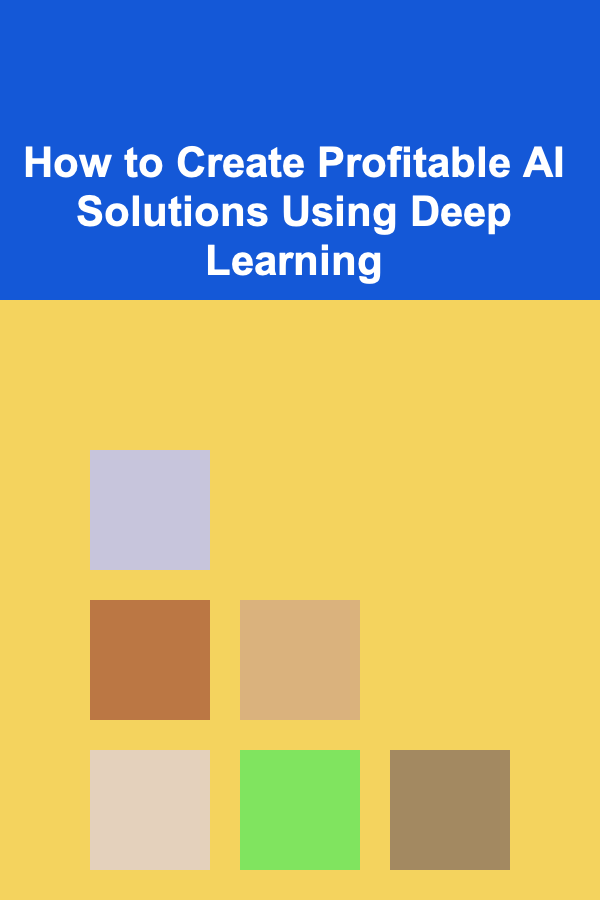
How to Maximize Your Knowledge by Utilizing Public Libraries for Free Resources
ebook include PDF & Audio bundle (Micro Guide)
$12.99$8.99
Limited Time Offer! Order within the next:

In an age where information is abundant but often scattered across paid platforms, public libraries remain an invaluable resource for those who want to expand their knowledge without breaking the bank. Public libraries provide access to a wide range of free resources, from books and audiobooks to digital databases, community programs, and workshops. Despite their incredible offerings, many individuals may not fully leverage the opportunities these institutions provide. This guide will walk you through how to maximize your knowledge by using public libraries to their fullest potential, with practical steps and strategies for enhancing your learning experience.
Take Advantage of the Vast Book Collection
Public libraries are a goldmine for book lovers and those eager to gain new knowledge. From classic literature to the latest nonfiction releases, the sheer volume and diversity of materials are often overwhelming. Here's how you can make the most of this valuable collection:
Actionable Steps:
- Request Library Membership: Most public libraries offer free membership. Signing up gives you immediate access to their entire catalog of physical and digital books.
- Explore Various Genres and Topics: Libraries typically carry books across a wide variety of genres and fields. If you're passionate about a specific area, like history, technology, or psychology, you can find an extensive selection of works, from textbooks to more niche publications.
- Join a Book Club or Discussion Group: Many libraries host regular book clubs and discussion groups that can provide a deeper understanding of the materials you're reading. These events offer an opportunity to exchange perspectives and engage in intellectual discourse with others.
By exploring different sections of the library and actively engaging with materials, you can broaden your knowledge in areas that might otherwise be hard to explore without extensive financial investment.
Utilize Digital Resources and E-Books
The digital age has transformed libraries into hubs for virtual knowledge, offering access to e-books, audiobooks, online journals, and even research databases. These resources are often overlooked but can significantly enhance your learning process.
Actionable Steps:
- Access E-Books and Audiobooks: Many public libraries provide digital platforms like OverDrive or Libby, where you can borrow e-books and audiobooks for free. These platforms are typically user-friendly, allowing you to read or listen to materials on your phone, tablet, or computer.
- Explore Online Databases and Journals: Public libraries often subscribe to a variety of academic journals, research databases, and professional publications. You can use these resources to gain access to scholarly articles, case studies, and industry-specific information. Databases like JSTOR, ProQuest, or Gale are available at no cost for library members.
- Learn New Skills with Online Learning Platforms : Some libraries partner with online platforms like Lynda.com (now LinkedIn Learning) or Skillshare, offering free courses in everything from programming and graphic design to business management. Take full advantage of these opportunities to gain practical, marketable skills.
By using these digital resources, you can deepen your expertise in specific subjects without incurring any additional costs for expensive course materials or subscriptions.
Attend Workshops, Lectures, and Community Programs
Libraries are not just places for borrowing books---they also host various educational programs that can contribute to your personal growth and knowledge acquisition.
Actionable Steps:
- Sign Up for Free Workshops: Many libraries offer free workshops and educational classes on topics such as writing, public speaking, financial literacy, or computer skills. Check your local library's website for event calendars and sign up for programs that interest you.
- Participate in Author Readings and Lectures: Libraries often host events where authors, experts, or community leaders give lectures or talks about their work. Attending these events can help you learn from experienced professionals in a more interactive and engaging format.
- Join Special Interest Groups: Public libraries frequently offer special interest groups where like-minded individuals gather to discuss various topics---such as science fiction, history, or even financial planning. Joining these groups allows you to engage with others who share similar learning interests.
By participating in these community-based learning events, you can develop new skills, gain unique insights, and expand your social network, all while enhancing your knowledge base.
Access Free Software and Learning Tools
In addition to educational programs, many libraries offer access to specialized software and tools that can help you with personal projects, academic work, or professional endeavors.
Actionable Steps:
- Use Computer Labs and Internet Access: Many libraries offer free access to computers and the internet. This can be particularly useful for individuals who don't have reliable internet access at home. You can use these resources to do research, complete assignments, or work on projects.
- Leverage Software for Creative or Technical Projects: Libraries often have licenses for powerful software like Adobe Creative Suite (Photoshop, Illustrator, InDesign), Microsoft Office, or even video editing tools that you can use for free. These programs are essential for anyone interested in graphic design, video production, or even business-related tasks.
- Take Advantage of 3D Printing and Maker Spaces: Some forward-thinking libraries have embraced the concept of maker spaces, where you can access 3D printers, laser cutters, and other innovative technology. If you're interested in design or prototyping, these spaces can provide hands-on experience with cutting-edge tools.
Using these free resources can help you develop your technical or creative skills without investing in expensive software or equipment.
Explore Educational and Reference Materials
Public libraries provide access to a wealth of educational materials, ranging from encyclopedias and reference books to specialized textbooks in fields like science, medicine, and law. These resources are a treasure trove for anyone seeking to expand their academic knowledge.
Actionable Steps:
- Research Textbooks and Reference Guides: Many libraries carry textbooks and guides that are typically reserved for higher education or specialized fields. Use these resources to supplement your studies or gain a deeper understanding of a particular subject.
- Study Local and International History: Public libraries often have historical archives, local history books, and access to specialized research materials. If you're interested in genealogy or regional history, your library may hold rare materials that are not available online or in commercial bookstores.
- Check Out Reference Works for Practical Information: If you're looking for practical knowledge in fields like law, health, or finance, libraries often carry reference materials, such as legal dictionaries, health guides, and personal finance handbooks, that can help you make informed decisions.
By diving into the reference section of your local library, you can gain access to a treasure trove of information that might not be available through other free or low-cost means.
Engage with Librarians for Personalized Assistance
Librarians are an often-underutilized resource, but they are highly knowledgeable professionals who can help guide your learning journey. Whether you're a student, researcher, or lifelong learner, librarians can provide invaluable assistance.
Actionable Steps:
- Ask for Recommendations: If you're looking to deepen your knowledge in a particular field, ask your librarian for recommendations on books, articles, and resources that could be helpful for your studies or personal interests.
- Request Research Help: Librarians are skilled in finding and navigating research materials. They can help you locate academic papers, historical records, and even obscure resources that might be hard to find on your own.
- Learn About Library Databases: Many libraries subscribe to specialized databases and collections. Librarians can provide tutorials or personal guidance on how to access and use these databases effectively, allowing you to tap into highly valuable research materials.
By taking advantage of librarians' expertise, you can navigate the library's resources more efficiently and find the specific materials you need.
Create a Personal Learning Plan Using Library Resources
To maximize your use of the library, it's helpful to develop a structured approach to your learning. Creating a personal learning plan allows you to stay focused and ensure that you are making the most out of the resources available.
Actionable Steps:
- Set Clear Learning Goals: Identify areas you want to explore, whether it's learning a new language, mastering a skill, or understanding a subject in depth. By having specific goals, you can better choose resources that align with your interests.
- Curate a Reading List: Use library catalogs to create a personalized reading list based on your goals. Consider a mix of books, audiobooks, and articles that will provide a comprehensive understanding of the topics you wish to explore.
- Schedule Time for Library Visits: Treat your library visits as part of your learning routine. Set aside time each week to browse, read, and explore new resources. Regular visits will help reinforce your commitment to continuous learning.
By setting a plan and being proactive in utilizing the library's resources, you can ensure that your educational journey remains focused, organized, and productive.
Conclusion
Public libraries are an untapped resource for those eager to expand their knowledge without financial constraints. By leveraging the library's vast collections of books, digital resources, workshops, software, and personalized support from librarians, you can embark on a continuous learning journey at no cost. Whether you're pursuing academic goals, personal development, or professional growth, the library offers countless opportunities to access knowledge and foster intellectual curiosity. It's time to unlock the full potential of your public library and take full advantage of the free resources at your fingertips.
Reading More From Our Other Websites
- [Home Family Activity 101] How to Create a Family Gratitude Journal for the Home
- [Personal Care Tips 101] How to Use Body Butter for a Spa-Like Experience at Home
- [Home Rental Property 101] How to Attract High-Quality Tenants to Your New Construction Rental Property
- [Personal Care Tips 101] How to Use Eyeliner to Enhance Your Eye Color
- [Small Business 101] How to Find and Use Small Business Resources to Fuel Your Success
- [Home Holiday Decoration 101] How to Design a Holiday Home Office Workspace
- [Gardening 101] How to Care for Your Container Garden: Watering, Fertilizing, and More
- [Home Holiday Decoration 101] How to Decorate for the Holidays with Kids: Kid-Friendly Ideas
- [Home Party Planning 101] How to Set the Right Atmosphere for a Cozy Home Gathering
- [Personal Care Tips 101] How to Match Your Aftershave to Your Cologne

How to Create Profitable AI Solutions Using Deep Learning
Read More
How to Utilize Employer Benefits to Maximize Savings
Read More
How to Deal with Shyness and Social Anxiety in Kids
Read More
How To Take Stunning Sunset and Sunrise Photos
Read More
10 Tips for Measuring the ROI of Your Customer Service Planner
Read More
10 Tips for Batching Tasks to Save Time and Money
Read MoreOther Products

How to Create Profitable AI Solutions Using Deep Learning
Read More
How to Utilize Employer Benefits to Maximize Savings
Read More
How to Deal with Shyness and Social Anxiety in Kids
Read More
How To Take Stunning Sunset and Sunrise Photos
Read More
10 Tips for Measuring the ROI of Your Customer Service Planner
Read More